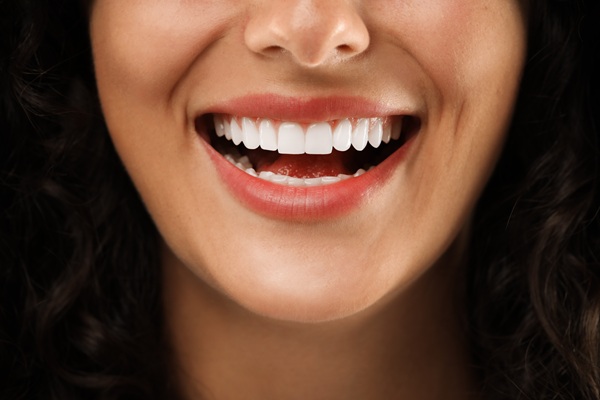Types of Dental Crowns: Which One is Right for You?

When it comes to restoring damaged or weakened teeth, dental crowns provide an effective and lasting solution. Dental crowns are custom-made caps placed over a tooth to restore shape, size, strength, and appearance. Understanding the different types of dental crowns available can help patients make informed decisions about their dental care.
Types of dental crowns
Porcelain crowns
Porcelain crowns are crafted entirely from ceramic material and are renowned for their natural appearance. They closely mimic the color and translucency of natural teeth, making them an excellent choice for restoring front teeth where aesthetics are a primary concern. Porcelain dental crowns are also biocompatible, making them less likely to cause allergic reactions or gum irritation. However, they may not be as strong as metal-based crowns and can be more susceptible to chipping or cracking under heavy biting forces.
Porcelain-fused-to-metal (PFM) crowns
PFM crowns offer a balance between strength and aesthetics. They have a metal substructure covered with a porcelain overlay, providing durability along with a tooth-like appearance. The metal core offers robust support, making these crowns suitable for both front and back teeth. A potential drawback is that, over time, the metal may become visible at the gum line as a dark line, especially if gum recession occurs. Additionally, there is a risk of the porcelain chipping off the metal framework.
Gold crowns
Gold crowns contain gold alloy mixed with other metals to enhance strength and durability. They are highly wear-resistant and do not fracture or chip easily, making them ideal for molars and patients who grind their teeth. Gold dental crowns require the least amount of tooth removal and are gentle on opposing teeth. Despite their advantages, their metallic color makes them less desirable for visible areas, and they can be more expensive due to the cost of gold.
Zirconia crowns
Zirconia crowns contain zirconium dioxide, a durable and aesthetically pleasing ceramic material. They offer the strength of metal crowns with the appearance of porcelain crowns. Zirconia dental crowns are resistant to fracture and can withstand substantial chewing forces, making them suitable for any location in the mouth. They also cause minimal wear on opposing teeth and can be shaped and colored to match surrounding teeth. One consideration is that they may be more opaque than other ceramic crowns, which could be a concern for front teeth restorations.
Factors to consider when choosing a dental crown
- Aesthetics: For highly visible teeth, crowns that closely resemble natural teeth, such as porcelain or E-Max crowns, are preferable.
- Biocompatibility: Patients with metal allergies or sensitivities should consider metal-free options like porcelain or zirconia crowns.
- Cost: The choice of material can significantly affect the cost, with gold and all-ceramic crowns typically being more expensive.
- Durability: For molars and premolars that endure significant chewing forces, stronger materials like gold or zirconia crowns may be more suitable.
- Longevity: While all crowns are designed to be durable, materials like gold and zirconia may offer longer-lasting results.
- Tooth Preservation: Some crowns require more tooth reduction than others; for instance, gold crowns require less removal of tooth structure.
Consult a dentist about dental crowns today
Dental crowns not only restore the functionality of teeth but also enhance the overall appearance of the smile. Understanding the differences between the types of dental crowns can empower patients to make informed choices about their oral health care. For more information, schedule a consultation visit today at Pembroke Dental & Spa.
To schedule a consultation, request an appointment on our website at https://pembrokedentalspa.com or call Pembroke Dental & Spa at (954) 526-2226 for an appointment in our Pembroke Pines office.
Related Posts
All-on-4 implant treatment has become a transformative option for individuals seeking full-arch restoration, and understanding several important factors before choosing all-on-4 is essential.Before patients undergo all-on-implant placement, their dental provider will need to determine if they are ideal candidates. Factors that contribute to this include: Sufficient bone density Good overall oral health Healthy gum tissue…
Seeking a straighter smile often begins with a visit to a cosmetic dentist. These professionals offer advanced teeth straightening options that improve alignment while also considering the appearance of the entire smile. Whether correcting mild crowding or closing noticeable gaps, a cosmetic dentist evaluates structure, bite, and facial balance to create a personalized plan that…
Be sure to see a general dentist before a toothache or other dental emergency. It benefits you to be proactive with your dental care and take advantage of all the ways a general dentist can help protect your teeth and overall oral health. A dentist does more than just treat dental problems. Preventive dentistry is…
Visiting a general dentist on a routine basis is one of the most important things you can do to maintain your oral and overall health. Routine dental visits allow your dentist to identify and treat any oral health issues before they become more intense and expensive problems in the future. This blog will explore the…
